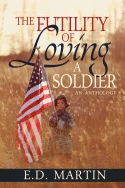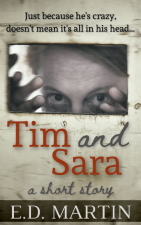One of the recurring comments I receive on my stories is that I have good dialogue. It’s natural; it’s nuanced; it flows just right.
But that’s not what real dialogue sounds like.
As an example, here’s a brief snippet of a statement I recently transcribed at work.
Q. What did the job consist of?
A. It was, uh, a downstairs, and we, and then he wanted an upstairs in this garage. For her weight-lifting or exercise room, and. So it was a pretty good-sized garage. And then, uh, we, we build that. And then [he] gave us a choice, to go hire somebody to do the roof and the soffit.
Q. Okay.
A. Cause I don’t roof.
Q. You don’t do roofing.
A. No.
Q. Okay.
A. I don’t like it no more.
Q. Okay.
A. So I stopped doing it.
Q. Okay.
And here’s an excerpt from a story I wrote, “The Wedding,” that’ll be in the anthology I hope to have out soon.
“How do you even find anything in here, Gene?” I asked him for the hundredth time, as I moved a dusty box of file folders over to my desk. “Nothing’s alphabetized or in the client database.”
Gene Lancaster shrugged his massive shoulders and leaned back in his chair, which creaked tiredly beneath his weight. “I made do just fine, missy, before you came on in here.”
Our secretary-slash-paralegal Loretta rolled her eyes. “I, for one, appreciate the efforts you’re making, Abby. Even if Mr. Lancaster don’t.”
“Hush now.” He waved his hand at her, batting away her words. “This whole system worked just fine for my daddy, and I reckon it’s good enough for me. And for Miss Big City, too.” He nodded in my direction.
“Your daddy? You ain’t half the lawyer he was.” Loretta had worked with Gene’s father, back when it was still Lancaster & Lancaster, instead of Lancaster & Empty Spot. “Your daddy, the real Mr. Lancaster, why, he was the best lawyer our county ever seen.”
“I told you to hush, woman.” He caught me grinning at their exchange, which I still found amusing despite hearing a version of it several times a day.
She ignored him, like usual. ‘You remember that case he had with old Mr. Myers?”
Gene slapped his knee. “Sure do. Old George was heading home from the VFW, lit to the gills, and smashed into Sheriff Tate’s car.”
See the lack of correct grammar in the first one? The stuttering, correcting, repeating? The vernacular and slang? And then compare it to the second one. The key to realistic dialogue is finding a balance between conversational tone and moving the conversation forward. If a sentence doesn’t make sense, cut out the parts that don’t make sense. If a character is repeating himself, cut out the repetition.
If you write, what are your tips for realistic dialogue? As a reader, what bugs you most about the dialogue you read?





